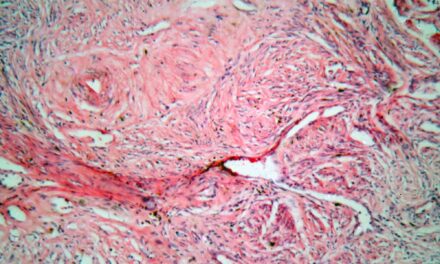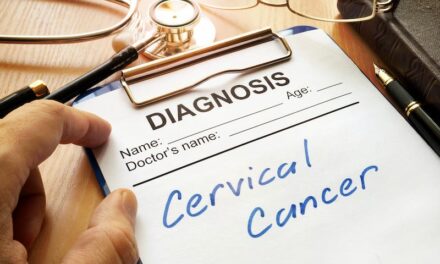BD announced a strategic partnership with Camtech Health, a digital health company focused on at-home health testing, to advance cervical cancer screening by offering the first-ever option for women in Singapore to self-collect a sample in the privacy of their own home.
The program combines the Camtech Health HPV (human papillomavirus) test for self-collection with the BD Onclarity HPV Assay, which is a clinically validated test that can simultaneously detect 14 high-risk HPV strains (or “genotypes”). The program objective is to improve the rate of cervical cancer screening in Singapore, where less than half of eligible women are currently being tested.
“For women in Singapore, lack of time, embarrassment, fear and inconvenience are among the key barriers to screeningi, and before now, Singapore only offered HPV testing via hospital or clinic settings with a speculum examination and a clinician collection,” says Jeff Andrews, MD, FRCSC, vice president of Global Medical Affairs at BD. “Cervical cancer is preventable, precancer is curable, and programs like this help to support the national goal of cervical cancer elimination. Not only does self-collection afford women greater access to HPV testing by enabling them to collect a sample in privacy at a time and place of their choosing, but they can also feel confident that the reliability of self-collected samples is comparable to those collected by a clinicianii.”
At-home collection can help address the urgent public health challenge of reaching women who do not attend routine cervical cancer screening.
- Cervical cancer is the fourth most common cancer among women globally, with an estimated 604,000 new cases and 342,000 deaths in 2020.iv
- Almost all cervical cancer cases (more than 95%) are caused by a persistent HPV infection, an extremely common virus transmitted through sexual contact.i
- In Singapore, cervical cancer ranks as the 10th most frequent cancer among women and the 4th most frequent cancer among women between 30 and 39 years of age.v
- Cervical cancer screening among all women in Singapore aged 25 – 74 decreased by 17% between 2007 and 2019; from 58% to 48%.vi
- Among those aged 25-29, the decline has been more precipitous—from nearly 50% in 2007 to only 21% in 2019.v
“Making at-home self-collection available is the first step to empowering health and well-being, but making the test easy to use is just as important,” said Kuok Meng-Han, Chairman of Camtech Health. “The Camtech Health HPV test with the Camtech Health app is completed in simple steps and then sent via postage-paid packaging provided in the kit. The sample is analyzed using the BD Onclarity HPV assay, and the BD Viper LT fully automated integrated molecular testing system, and physician-reviewed results are provided on the app with a virtual consultation to discuss any abnormalities.”
Further reading: Cervical Cancer Screening: Survey Points to Self-Collection as Improving Access
HPVs are a large group of related viruses. Each virus in the group is given a number, which is called an HPV genotypevii (or “type”). BD Onclarity is an FDA-approved assay that tests for an extended set of HPV types individually, and particularly for HPV52 and HPV33/58, three HPV types that pose a high-risk for causing cervical cancer in Singapore. Most clinically validated tests report multiple HPV types in a single pooled result, which can mask the true risk of developing cervical cancer. Being able to identify the high-risk genotypes that are prevalent in cervical cancers in the country is critical to the detection and prevention of cervical cancer.
“Providing women the ability to self-collect in the convenience of their own home is critical to improving their access to cervical cancer screening, and empowering women to take charge of their own health, especially among underserved communities in Singapore who might be deterred from seeking healthcare,” says Dr Ida Ismail-Pratt, Advisor of the Alliance for Active Action against HPV (A4HPV), a youth-led non-profit committed to increasing awareness about HPV and its related cancers, by working on effective strategies for equitable and affordable cervical cancer screening access across the Commonwealth. “With less than 50% of women in Singapore regularly screening for cervical cancer, it is heartening that this self-collection option is finally available in Singapore for the first time. We hope that this additional option will help Singapore to reach the WHO’s cervical cancer screening goal of 70% by 2030, and truly leaving no one behind.”
Combining HPV self-collection with an assay that individually identified more kinds of HPV allows clinicians to focus on those women at highest risk while not overtreating those at very low risk by allowing risk stratification directly on the screening sampleVI.
Featured image: BD announced a strategic partnership with Camtech Health to advance cervical cancer screening by offering the first-ever option for women in Singapore to self-collect a sample in the privacy of their own home. Photo: BD
References:
i Chua B, et al. Int J Environ Res Public Health. 2021 Apr 26;18(9):4586.
ii Arbyn, M. et al. (2018) Detecting cervical precancer and reaching underscreened women by using HPV testing on self samples: updated meta-analyses. Bmj 363, k4823; Cadman, L. et al. (2021) A randomised comparison of different vaginal self-sampling devices and urine for human papillomavirus testing – Predictors 5.1. Cancer Epidemiol Biomarkers Prev Published Online First on January 29, 2021; DOI: 10.1158/1055-9965.EPI-20-1226; Rohner, E. et al. (2020) Test Accuracy of Human Papillomavirus in Urine for Detection of Cervical Intraepithelial Neoplasia. J Clin Microbiol 58 (3)
iv https://www.who.int/news-room/fact-sheets/detail/cervical-cancer
vi National Population Health Survey 2019, ISBN 978-981-14-5641-1. Epidemiology & Disease Control Division and Policy, Research & Surveillance Group, Ministry of Health and Health Promotion Board, Singapore.Vii https://www.cancer.org/cancer/risk-prevention/hpv/hpv-and-cancer-info.html





